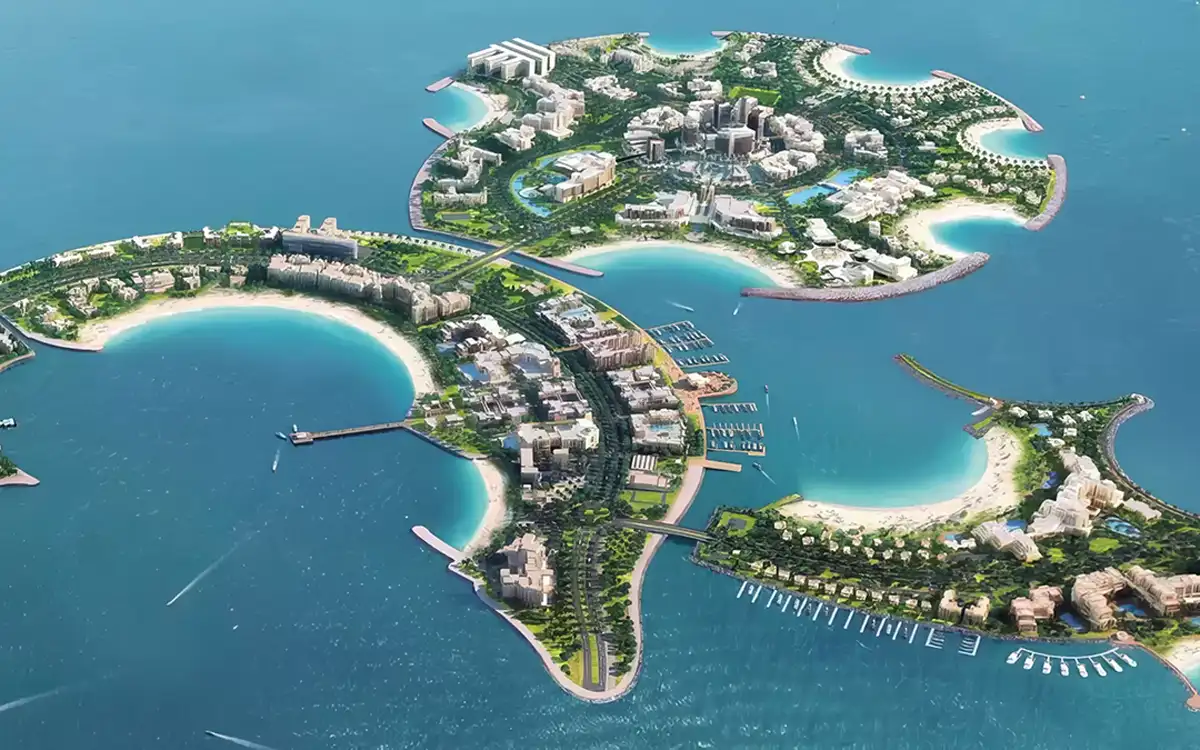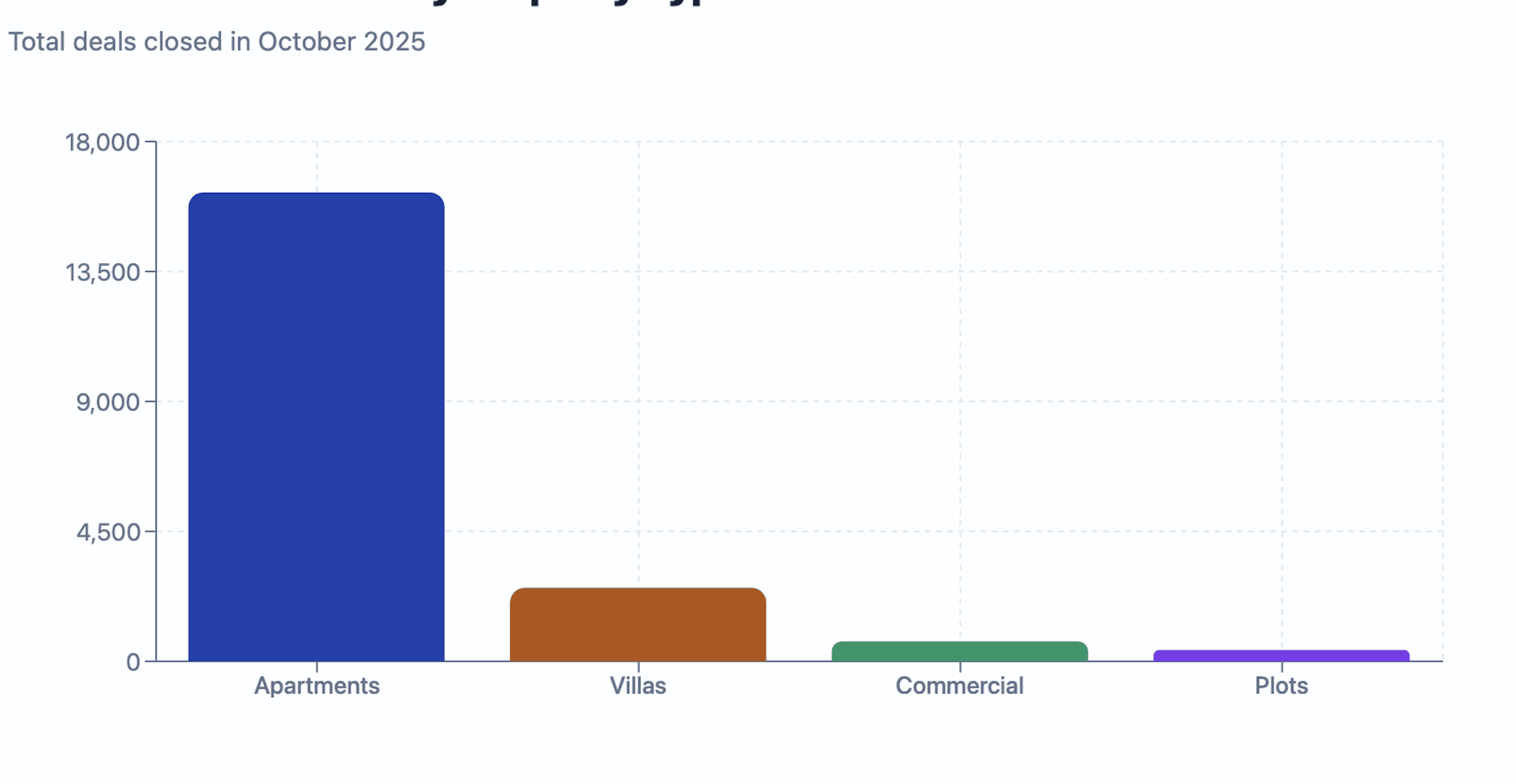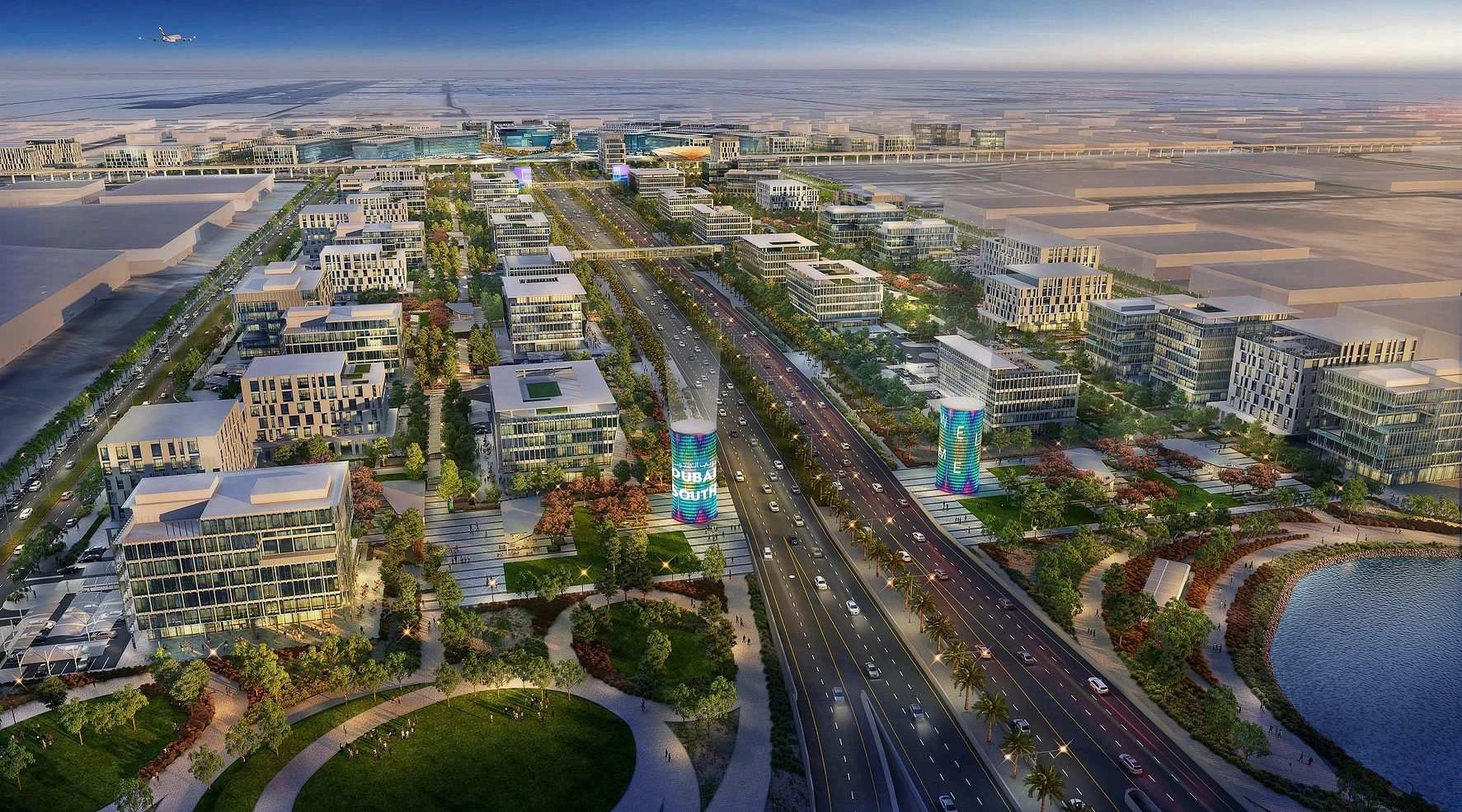Diversifying your real estate portfolio is an essential strategy for both minimizing risk and optimizing returns, particularly in a fast-paced market like Dubai. By spreading investments across different property types, locations, and phases of the market cycle, you can shield your assets from volatility while positioning yourself to seize growth opportunities.
In this guide, we will delve into the advantages of diversification, present strategies for balancing various property types and geographic areas, and offer key insights into navigating market cycles to help you create a strong and resilient real estate portfolio in Dubai.
Mixing Property Types
Investing in a range of property types is a core principle of diversification, allowing you to balance risk and reward to ensure your portfolio remains resilient, even when specific market segments face challenges. By incorporating different property categories such as residential, commercial, and off-plan you can enhance the stability and growth potential of your investments.

Residential properties, including apartments, villas, and townhouses, are typically considered stable assets due to consistent demand from both expatriates and local residents. They offer reliable rental income and opportunities for capital appreciation, particularly in sought-after locations.

Commercial properties, such as office spaces, retail shops, and warehouses, can provide higher rental yields, especially in prime business hubs like Downtown Dubai or the Dubai International Financial Centre (DIFC). However, they often carry higher risks, as economic downturns can lead to lower occupancy rates and affect rental income.

Off-plan properties those still under construction can deliver substantial returns when purchased early, as they are usually offered at lower prices compared to completed units. As the project advances, there is often significant potential for capital appreciation. However, these investments carry risks such as project delays or cancellations, making it crucial to select developers with a strong track record.
Balancing Risk and Reward in the Dubai Real Estate Market
Distributing your investments across various property types, each of which reacts differently to market fluctuations.
High-yielding commercial properties, for example, can generate substantial income but may be more vulnerable to economic shifts. To offset this, it’s important to include residential properties in well-established locations that offer stable, long-term rental income, acting as a buffer against market volatility.
nvesting in off-plan or newly developed properties in emerging areas can present opportunities for capital appreciation. By combining these growth-focused investments with lower-risk assets, you can create a well-rounded portfolio that maximizes returns while minimizing exposure to risk.
Examples of Diversified Portfolios That Have Performed Well in Dubai
A successful diversified portfolio in Dubai should feature a strategic mix of property types that balance risk and return. Residential units in Downtown Dubai, for instance, offer stable rental income and potential for capital appreciation due to consistent demand and the area’s prime location.
In contrast, commercial spaces in the Dubai International Financial Centre (DIFC) provide high rental yields, benefiting from strong demand for premium office spaces in this globally recognized financial hub. Additionally, off-plan properties in Dubai South present promising opportunities for future growth, especially as the area undergoes significant development, including the expansion of Al Maktoum International Airport.

This combination illustrates how a well-balanced portfolio can enhance performance while mitigating exposure to market risks.
Geographical Diversification
Spreading your investments across different neighborhoods and districts in Dubai can reduce the impact of localized market downturns and allow you to benefit from growth in emerging areas.
Spreading Investments Across Neighborhoods and Districts in Dubai
Investing in multiple areas helps protect your portfolio from the effects of market fluctuations in any single location. For instance, if property values stagnate in one area, growth in another can offset that impact.
Different regions in Dubai experience growth at varying times due to factors such as new infrastructure projects, urban planning initiatives, and shifts in market demand. Geographical diversification enables you to seize these growth opportunities effectively.
How to Identify Up-and-Coming Areas With Strong Growth Potential
Areas with new infrastructure projects, such as metro expansions, new roads, or commercial hubs, are typically positioned for growth. For example, Dubai South is anticipated to benefit significantly from ongoing developments.
Locations targeted by government initiatives, like the Dubai 2040 Urban Master Plan, also present excellent investment opportunities, as they are likely to experience increased demand and appreciation in property values.
Looking into the historical performance of different neighborhoods can also help identify trends; areas that have demonstrated consistent growth or recovery after downturns are often strong candidates for investment.
Importance of Considering Infrastructure Developments and Urban Planning in Your Diversification Strategy
Infrastructure and urban planning are crucial factors influencing property value in Dubai. When diversifying your portfolio, it’s important to consider the impact of metro connectivity. Properties situated near existing or planned metro stations typically experience higher demand and appreciation, making investment in such areas a strategic choice.

Proximity to business hubs is another significant consideration. Areas close to established districts like Business Bay and the Dubai International Financial Centre (DIFC), as well as emerging hubs in Dubai South, are likely to attract professionals. This influx ensures strong demand for both residential and commercial properties.
Additionally, focusing on areas included in Dubai’s long-term urban expansion plans can be beneficial. These locations are expected to experience substantial growth in population, infrastructure, and amenities, which will, in turn, drive up property values.
Understanding Market Cycles
Understanding market cycles is essential for making informed investment decisions. By diversifying your portfolio across different stages of the market cycle, you can protect against downturns and capitalize on opportunities.
Diversify Across Stages of the Market Cycle to Protect Against Downturns
Understanding market cycles is crucial for making sound investment decisions, and diversifying across different stages of the cycle helps protect against downturns while maximizing opportunities. Market cycles generally consist of growth, stability, and decline phases, each offering distinct opportunities.
During the growth phase, it's beneficial to focus on investing in emerging markets or properties with high potential for rapid appreciation. This potential is often driven by factors such as new infrastructure or economic expansion.
In the stability phase, it’s wise to maintain holdings in established areas that provide consistent rental income and are less prone to volatility. These properties serve as a safeguard during market downturns.
When the market enters a decline phase, consider acquiring distressed properties at reduced prices. This strategy positions your portfolio for substantial gains as the market recovers. By strategically investing across these phases, you can enhance resilience and achieve long-term returns.
Mature and Emerging Markets in Dubai
In mature markets like Dubai Marina, Downtown Dubai, and Palm Jumeirah, investing in well-established areas can provide stability, strong rental yields, and significant long-term appreciation potential. These neighborhoods are recognized for their desirability and consistent demand, making them attractive options for investors seeking reliability.
Conversely, emerging markets such as Dubai South, Jumeirah Village Circle, and Al Furjan present unique opportunities. These areas often feature lower entry costs and the potential for substantial growth as they continue to develop, making them appealing for those willing to embrace a more dynamic investment approach.
Tips for Timing Your Investments
Market Timing: Monitor economic indicators, property price trends, and market sentiment to time your investments effectively. Buying during market dips and selling during peaks can significantly enhance your returns.
Diversification by Timing: Stagger your investments across different times to capture various market cycles. This approach reduces the risk of being overly exposed to any single market phase.
Stay Informed: Regularly review market reports, attend industry events, and consult with real estate experts to stay ahead of market trends and make timely investment decisions.
Join one of our Webinars for more information about the challenges and the opportunities that await you in Dubai properties.
Conclusions
Diversifying your real estate portfolio in Dubai is a strategic way to manage risk and optimize returns. By mixing property types, spreading investments across different areas, and understanding market cycles, you can build a resilient portfolio that performs well in various market conditions. Whether you’re investing in residential, commercial, or off-plan properties, diversification helps ensure that your portfolio remains strong and profitable over the long term.
For more insights on building a successful real estate portfolio in Dubai, consider exploring these related articles:
Flipping Properties in Dubai: Tips for Maximizing Profit: A guide to successful property flipping strategies in Dubai.
Understanding Dubai Property Taxes and Fees: Learn about the costs associated with property ownership in Dubai.
The Impact of Dubai's Freehold Property Laws on Foreign Investment: Discover how Dubai’s property laws have shaped its real estate market.






